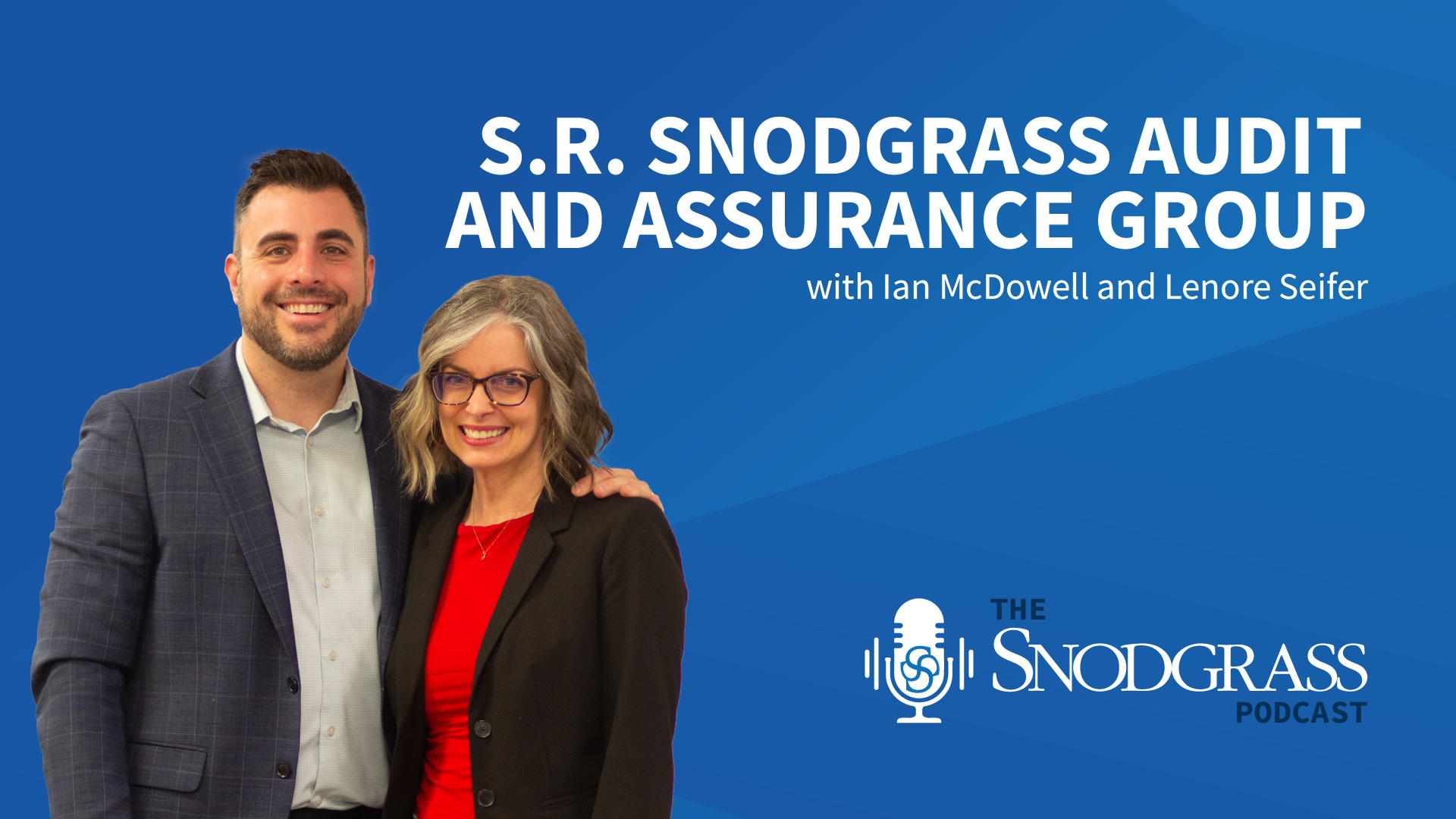On March 27, 2020, President Trump signed into law the Coronavirus Aid, Relief, and Economic Security Act (CARES Act or the Act). The massive bill provides new tax benefits and new business relief programs in response to the novel coronavirus (COVID-19) and the impact it has had on the financial situation of individuals and businesses. This Update is related to the tax benefits provided by the Act.
Individual Tax Benefits
Recovery Rebates
The Act provides for advance refund payments of credits against 2020 taxes for individuals. The credits are generally $1,200 for individuals, $2,400 for joint filers, and $500 for each qualifying child. The credit amount is phased out beginning at adjusted gross income (AGI) amounts of $75,000 for single taxpayers, $112,500 for heads of households, and $150,000 for married filing jointly taxpayers. The credits will be phased-out 100 percent for taxpayers with AGIs of at least $99,000 for single taxpayers, $136,500 for heads of households, and $198,000 for married filing jointly taxpayers. The threshold amounts will be based on 2018 AGI amounts, unless a 2019 tax return has been filed. To be eligible for the rebate, the individual must not be a nonresident alien, able to be claimed as a dependent on another taxpayer’s tax return, or an estate or trust. In addition, to receive the rebate, the individual must have a valid social security number (or an adoption taxpayer identification number, where appropriate). The ultimate amount of the rebate that is due to an individual will be based on the individual’s 2020 tax return. If a larger amount is due based on 2020 AGI, this will be received with the 2020 tax return filing. If 2020 AGI would indicate the advance rebate sent out was too large, the rebate will not be reduced.
The Internal Revenue Service (IRS) has been directed to use an individual’s 2019 social security income as the basis for a rebate for individuals who have not filed a 2018 or 2019 tax return. In addition, the Act instructs the IRS to engage in a public campaign to alert individuals of eligibility for the rebate and how to receive it if a 2018 or 2019 tax return has not been not filed.
The Secretary of the Treasury has been directed to send out the rebates as quickly as possible. Expectations are that rebates will begin to be sent out as quickly as within three weeks from the Act’s enactment and no later than December 31, 2020. Within 15 days of the rebate being sent out, a notice is to be sent by mail to the individual(s) at their latest known address, including method of payment and phone number to contact if payment is not received.
Distributions from Qualified Retirement Plans
The Act waives the 10 percent penalty on early withdrawals up to $100,000 from qualified retirement plans for COVID-19-related distributions. To be eligible, the distributions must be made during the 2020 year, for an individual or spouse diagnosed with COVID-19 with a CDC-approved test, or an individual who has experienced adverse financial consequences as a result of quarantine, business closure, layoff, or reduced hours due to COVID-19. Under the Act, any income attributable to an early withdrawal is subject to tax over a three-year period, and taxpayers may recontribute the withdrawn amount to a qualified retirement plan without regard to annual caps on contributions if made within three years. The Act also eliminates the general 20 percent federal income tax withholding requirement for 2020 early withdrawals from qualified retirement plans for COVID-19-related distributions.
Required Minimum Distributions (RMDs) from Qualified Retirement Plans
The Act waives all 2020 RMD requirements for qualified retirement plans. This waiver applies to both 2019 RMDs required to be made by April 1, 2020, and RMDs required for 2020.
Retirement Plan Loans
Typically, employees cannot borrow more than the lesser of one-half of the vested account balance or $50,000 from employer-sponsored retirement plans. The Act eliminates the one-half of vested account balance limit and increases the dollar limit to $100,000 for a 180-day period, beginning with the date of enactment. There is no requirement that these new limits be related to COVID-19-related situations. In addition, for existing loans required to be repaid before December 31, 2020, the Act gives one additional year for repayment.
Charitable Contributions to Public Charities
An above-the-line $300 charitable contribution deduction for 2020 is established by the Act. This means that a taxpayer will not have to itemize to receive this tax deduction for qualified charitable contributions made in 2020. In addition, the limitation of 50 percent of AGI for charitable contributions is eliminated for 2020 for individuals who do itemize. The limitation of 15 percent of AGI for food inventory contributions has also been increased to 25 percent for 2020 contributions.
Employer Student Loan Repayments
The Act provides an exclusion from an employee’s taxable income of up to $5,250 in payments by an employer for repayment of an employee’s student loan. This exclusion applies for payments made after the date of enactment and before January 1, 2021.
Business Tax Benefits
Employee Retention Credit
Eligible employers are allowed to receive a credit against employment taxes generally equal to 50 percent of qualified wages paid to employees not working due to the employer’s full or partial cessation of business or a significant decline in gross receipts related to COVID-19. The credit applies to any employer who was carrying on a trade or business in 2020 that was suspended due to orders from an appropriate government authority limiting commerce, travel, or group meetings due to COVID-19, or any employer who during the period beginning with the first calendar quarter of 2019 experienced a 50 percent or greater reduction in gross receipts in that quarter when compared to the prior year and during the period ending with the subsequent quarter had gross receipts greater than 80 percent compared to the prior year. Nonprofits may also qualify for this credit. The credit is available on a quarterly basis.
The amount of wages, including health benefits, for which the credit can be claimed has a $10,000 limit per employee and cannot include any wages considered in the Families First Coronavirus Response Act.
There are different rules for employers with more than 100 employees. In general, employers with 100 or fewer employees will be allowed to claim the credit for wages paid during a quarter even if the business is still operating.
Employer Payroll Tax Deferral
Employer payroll taxes (employer matching of FICA taxes, Social Security, and Medicare) due from the date the Act is signed into law and ending December 31, 2020, are deferred under the Act. This deferral also applies to 50 percent of the payroll taxes incurred by self-employed individuals. Under this deferral, one-half of the deferred payroll taxes are due on December 31, 2021, with the remaining 50 percent to be paid on December 31, 2022. Employers and self-employed individuals who have indebtedness forgiven under the Act do not qualify for this payroll tax deferral.
Net Operating Losses (NOLs)
Under current law, NOLs cannot be carried back (except for certain farming losses). The Act allows businesses a five-year carryback of NOLs arising in 2018, 2019, and 2020. The Act also allows for NOLs arising before January 1, 2021, to offset 100 percent of future taxable income, temporarily eliminating the 80 percent of taxable income limitation.
Also eliminated is the “excess business loss” limitation of $250,000/$500,000 that applied to certain losses allowed for noncorporate taxpayers. This elimination applies to losses for years before January 1, 2021. Taxpayers who were subject to this limitation in 2018 can file an amended tax return to claim the losses.
Alternative Minimum Tax (AMT) Credit
The Act modifies the schedule created by the Tax Cuts and Jobs Act (TCJA) to receive corporate AMT refundable credits when the TCJA eliminated the corporate AMT. The refundable credit was originally scheduled to be received at 50 percent in years 2018 through 2020, with 100 percent of the remaining refundable credit to be received in 2021. Under the Act, 100 percent of the refundable credit is to be received in 2019, with the ability to elect to use 100 percent in 2018.
Business Interest Expense Deduction Limitation
The business interest expense deduction limitation threshold is increased under the Act. The deduction is limited to 50 percent of the taxpayer’s adjusted taxable income (ATI) for 2019 and 2020, from the 30 percent limitation currently in effect. In calculating the limit for 2020, taxpayers may elect to use their ATI from 2019. For partnerships, the change to the 50 percent limit only applies to tax years beginning in 2020. There are additional special rules for individual partners related to the business interest expense deduction limitations.
Qualified Improvement Property (QIP) Correction
A correction to the depreciation of QIP needed as a result of an error in the TCJA was included in the Act. The TCJA error, commonly known as the retail glitch, caused QIP to be ineligible for the 100 percent bonus deduction and forced a 39-year life on this property. This correction allows taxpayers to apply the 100 percent bonus deduction and a 15-year life to QIP and is eligible for QIP placed in service after September 27, 2017.
Charitable Contributions Limits on Corporations
The 10 percent of adjusted tax income limit on charitable contributions made by corporations is increased to 25 percent for 2020 by the Act.
Excise Tax Relief
The Act provides temporary exceptions for certain excise taxes for alcohol used in or contained in hand sanitizer produced or directed by the Food and Drug Administration and for excise taxes on aviation and kerosene used in aviation fuel.
The CARES Act is a large bill, and this Update is intended to be a general summary of the larger tax provisions included in the bill. For specific questions related to tax provisions that may impact you or your business, please contact us.
If you wish to discuss any of the matters in the attached update in more detail, please contact Chuck Marston, Rich Pacella, or Danelle Stewart at cmarston@srsnodgrass.com, rpacella@srsnodgrass.com, or dstewart@srsnodgrass.com or 724-934-0344.
Posted 3/30/20



